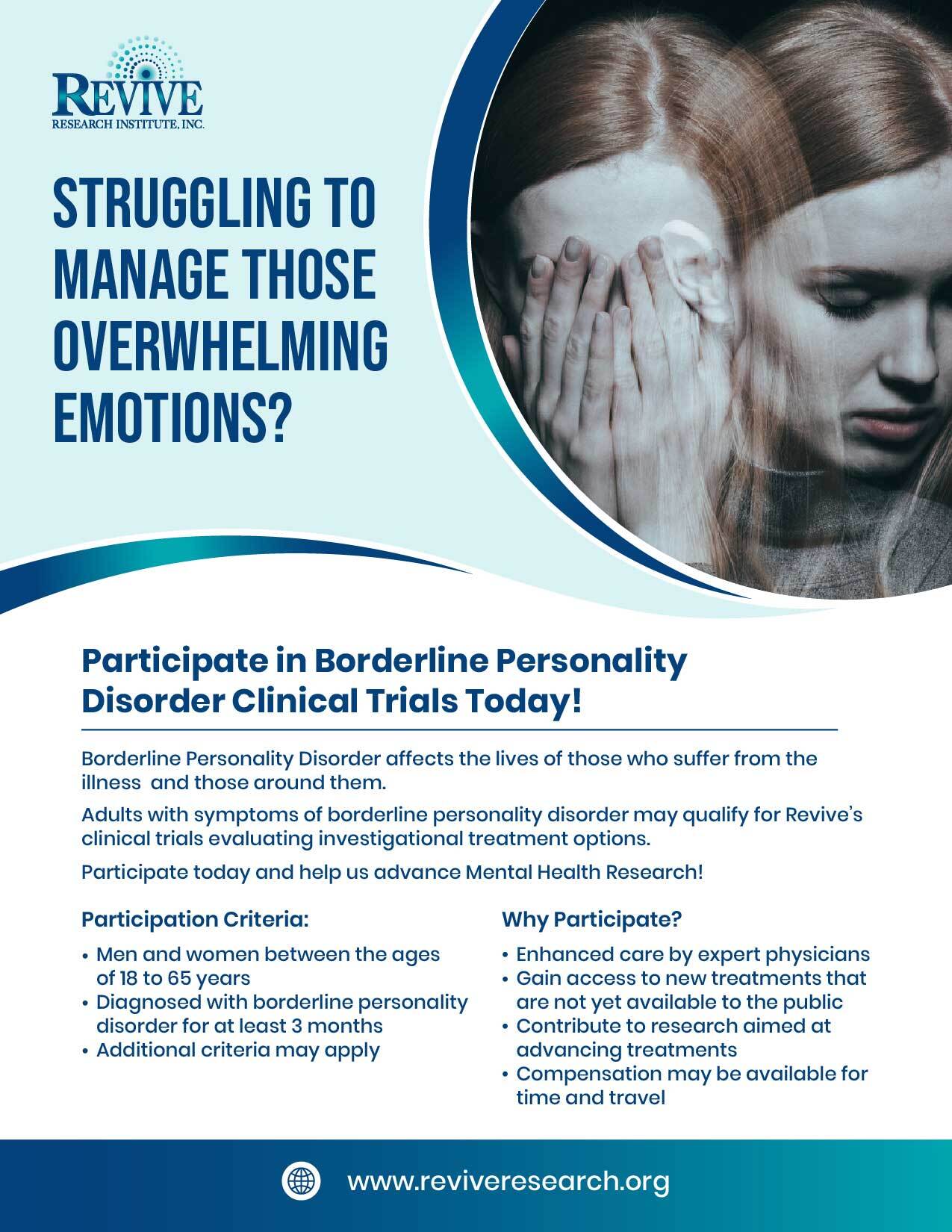Struggling with Constantly Being Emotionally Unstable?
Explore Borderline Personality Disorder Clinical Trials investigating potential treatment options!
Borderline Personality Disorder (BPD) is a mental health disorder characterized by a pattern of unstable emotions, relationships, self-image, and impulsive behavior. People with BPD frequently have intense and rapid mood swings, difficulty regulating their emotions, and persistent fear of abandonment. The disorder affects about 1-2% of the general population.
Revive Research Institute is conducting clinical research investigating novel BPD treatment options that may help manage symptoms.
You may qualify for Borderline Personality Disorder Clinical Trials if you:
- Are 18 to 65 years of age
- Have been diagnosed with BPD 3 months prior to the screening test
- Have a BMI < 35kg/m2
*Take part in this bipolar disorder clinical trial at no cost to you or your private medical insurance. In addition, all participants receive study-related treatment from Doctors and Healthcare experts.
*Take part in this Borderline Personality Disorder research study at no cost to you or your private medical insurance. In addition, all participants get free study-related treatment from Doctors and Healthcare experts.
*If you are interested in participating in the Borderline Personality Disorder Clinical Trials or would like more information, please fill out the form so we can determine if you qualify for the study and contact you. Note that this is an entirely voluntary decision. If you change your mind about participating in a study, you can leave at any time.


